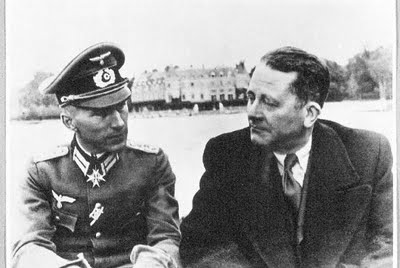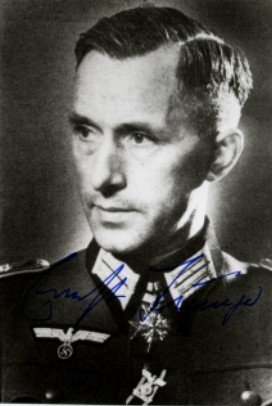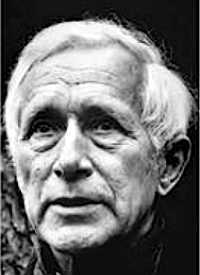The Protestant Deformation of Christian Nationhood, Part 1
Introduction
Contemporary Protestants try hard to be nice. Church leaders ceaselessly call upon Christians to be “inclusive” and “compassionate” when dealing with “the Other.” Introductory texts in theology teach that the “church is always threatened by a false unity that does not allow for the inclusion of strangers and outcasts.” Among White Anglo-Saxon Protestants, in particular, the compulsory embrace of humanity’s “rich diversity” is the prescribed antidote to “the ominous coupling of a shadowy religiosity with a militant nationalism or racism in such slogans as ‘God and Fatherland’ or ‘God, family, and country.”[1]
According to Princeton theology Professor Daniel L Migliore, such “vague but uniformly comforting references to God and religious values” shaped “the ideology of too many German Christians during the Third Reich and are still invoked by “chauvinistic movements in the United States and other countries.”[2] The notion that nationalism is a social pathology owes much of its all-pervasive influence to Karl Barth (1882–1968), a Swiss Protestant theologian who achieved fame and more than a little notoriety in the 1930s through uncompromising opposition to the National Socialist takeover of both church and state in Germany. The fact is, however, both Barth and Migliore seriously misrepresent the relationship between Christian communities of faith and the blood bonds of national identity.
The Bible provides ample warrant to designate “nations” and “peoples” as essential building blocks in the constitution of the holy, catholic, and apostolic church of Christ. Indeed, Christ directed his disciples to “make disciples of all the nations.”(Matthew 28:19) The Old Testament people of Israel thus became the prototype of the Christian peoples of God in the New Covenant creation. Accordingly, the Russian Orthodox Church affirms that all peoples have the “right to national identity and national self-expressions” within the Body of Christ. In the nineteenth century, even an Anglican theologian such as FD Maurice saw the Old Testament as the history of a “peculiar nation” whose destiny is fulfilled and completed in the New Testament. God’s covenant promises to Old Israel are fulfilled when “a universal Church [unfolds] itself out of that nation,” taking “root in other nations and peoples throughout the ancient world.”[3]
But during the twentieth century ethnonationalism lost its religious aura of sanctity. In the erstwhile “Anglo-Saxon countries,” in particular, few Protestants any longer believe that it is part of God’s plan to form the character of each nation by means of the “spiritual body” within it, giving rise to what the Germans call a Volkskirche. Even Anglicans reject the idea that the Church of England was and should be again the Church for England and the English people, at home and in the diaspora. That decisive break with the past is very largely due to the Protestant Deformation produced by the theological crisis afflicting the German church during the 1930s.[4]
Ideological Civil War and Theological Crisis
The Protestant Deformation in Germany was part of the collateral damage inflicted on Christian civilization by the “ideological civil war of the twentieth century” in which “the universalist extremism of Bolshevism provokes the extremism of the particular in Nazism.” Ernst Nolte portrays the role of German National Socialism in the europäische Burgerkrieg between 1917 and 1945 as an “excessive” reaction to Bolshevism. In his view, an “excess in what is justified at the outset leads to the unjustifiable.”[5] The same dynamic operated in the theological crisis which engulfed Protestant churches in Germany as growing numbers of academic theologians, pastors, and parishioners eschewed neutrality and took opposing sides in the ideological conflicts dividing society at large. Soon after the Machtergreifung (the Nazi seizure of power) of 1933 which endowed Hitler with dictatorial powers, open ideological warfare broke out between a breakaway Bekennende Kirche (Confessing Church, hereafter BK) under the intellectual leadership of the Karl Barth and the Deutsche Christen (DC) movement in mainstream Lutheran and Evangelical churches. The latter were soon united under a Reichsbischof sworn to serve the Führer.[6]
Emanuel Hirsch (1888-1972) was just one of many prominent theologians whose loyalty to the National Socialist regime placed them at daggers drawn with Barth and the BK. Very early on in the ideological civil war tearing Germany and Europe apart, Hirsch aligned himself openly with the right.[7] Meanwhile, on the left, Barth, began his life-long journey as a fellow-traveller, a radical anti-Nazi widely suspected to be soft on Communism. Early in his career, he was known “as the notorious ‘red pastor’ of Safenwil;” late in life during the Cold War he excused “his peculiar attitude towards aggressive Communism in Hungary” by reference to the “good intentions” that inspired leftist totalitarianism. Barth’s ideological allegiances account for his “excessive” reaction to the rise of the DC movement. Even “Barth’s ‘friends’ in the Confessing Church thought him too difficult and not diplomatic enough.” In fact, he was seen as the “greatest danger” to the church “because he picked too many specific battles with National Socialism.”[8] Few would call Barth’s “rationality” into question. Barth was not, however, always so generous to his DC opponents, whose teachings he dismissed contemptuously as a “blatantly nonsensical” and “irresponsible pseudotheology.” [9]
Such vituperative rhetoric was both unjust and lacking in Christian charity. Robert Ericksen, a historian who shares Barth’s anti-Nazi stance, nevertheless describes Hirsch and two other prominent theologians supportive of the Deutsche Christen as “well-meaning, intelligent and respectable individuals who also happened to support Adolf Hitler.” He carefully demonstrates that each of these men developed an intellectually defensible theological rationale for his political stance. But, he continues, in and of itself, reason could not ground their political judgements. Like Barth, they made “an existential leap of faith” when choosing sides in the ideological civil war raging around them. In the end, however, Ericksen agrees with Barth that DC theologians were on the wrong side of history when they portrayed Jews as “a destructive force in Germany.”[10] Ernst Nolte is not so sure; he suggests that the anti-Judaism of the National Socialists had a “rational core” which “consists in the factual reality of the large role played by a certain number of personalities of Jewish origin at the centre of the communist and socialist movement, evidently because of the universalist and Messianic traditions proper to historical Judaism.”[11]
No doubt Jews were heavily over-represented in both Russian Bolshevism and the German Communist Party, a circumstance often cited by Hitler to justify his anti-Jewish policies. Such empirical data made little impression upon Karl Barth. As an intellectual leftist, Barth was predisposed to philo-Bolshevism; as a Christian humanist he naturally leaned towards philo-Semitism. He shared in the cosmopolitan universalism inherent in the messianic traditions of both historical and contemporary Judaism. For Barth, Jews, far from being an especially evil race were God’s ever-present reminder to Christians of the essential sinfulness of mankind at large. Barth broke “radically with those more traditional Christian thinkers who see in Israel’s refusal to receive Christ a purely human refusal, a merely human blindness to the messiahship of Christ.” For Barth, according to John Johnson, “the Jews do not receive Christ because God has ordained their rejection of him.” Israel’s disobedience, whether in killing Christ two thousand years ago, or in siding with the Bolsheviks in their ideological civil war against bourgeois Christians in modern Europe, “is really a sign of humanity’s rebellion against God.”[12]
Barth went further, suggesting that the existence of the Jews was, in itself, proof of God’s existence. But the Jews cannot “fully convince the rest of the world of its need of God until the Jews themselves acknowledge their own need and enter the church.” God’s salvific plan for humanity therefore requires the mass conversion of the Jews at the Second Coming of Christ. Barth insists that the “Church can understand its own origin and its own goal only as it understands its unity with Israel. Barth denied that God has rejected the Jewish people. The New Covenant of Christ did not supersede the Old Covenant with the seed of Abraham. Old Israel remains under the bow of one covenant joining it with the New Israel of the Church until the last days when “Jesus Christ will come again in His glory with all His angels.” Jew and non-Jew would finally be fused together in the Body of Christ.[13]
Barth and other “progressive” German pastors worked to undermine the theological foundations of the deeply-ingrained Christian wariness towards Jews. While they were successful in destabilizing orthodox theology on the Jewish Question, their efforts attracted the law of unintended consequences. On the traditional understanding, God cursed the Jews because they rejected the Lord Jesus Christ. If a Jew is baptised, therefore, the theological case for discrimination against him collapses. But, once German Christians were persuaded to find the source of a Jew’s ethno-national identity not in his theology but in his genetic make-up, the seeds of an intractable ethno-racial conflict were sown. However well-intentioned it may have been, Barth’s ecumenical enthusiasm brought the biological dimension of Jewish racial identity into sharper relief. Just as the murderous excesses of the revolutionary left heightened the horror attached to the Schreckbild of “jüdischer Bolschewismus,” Barth’s frankly irrational faith in the divinely-ordained, messianic role of the Jews inevitably provoked counter-excesses among Christians sympathetic to the cause of German national revival.
Barth vs. the Volkskirche
In a speech at the Berliner Sportpalast on 13 November 1933, a prominent DC leader, Dr Reinhold Krause, vowed that the National Socialist Revolution was not going to halt before the gates of the church. On the contrary, he looked forward to the full assimilation of ecclesiastical matters into the realm of politics; the Volkskirche was to be folded into the Volksstaat. When Krause went on to reject both the Old Testament and the theology of St Paul because of their Jewish origins, it was clear that the DC had become the “mirror-image” of Jewish hyper-ethnocentrism. Both Germans and Jews were to be defined as members of a race not a religion. Conceiving the Jewish Question in racial rather than theological terms, Krause condemned the church’s mission to the Jews as a serious threat to the racial integrity of the German Volkstum. Accordingly, the DC supported the so-called Aryan Paragraph requiring the dismissal of pastors who happened to be baptized Jews.[14] In the face of such provocations, Barth rapidly assumed leadership in the creation of the BK, drafting much of the Barmen Declaration of 1934 which formalized the split within the German church.
Eleven years later, the bloody denouement of Europe’s ideological civil war left Germany lying prostrate in Schutt und Asche. Barth emerged as the clear victor over völkische rivals such as Emanuel Hirsch who received what amounted to an immediate dishonourable discharge from the Göttingen theological faculty. In 1935, Barth had lost his position as “the most highly regarded professor of law in Germany” when he refused to swear an oath of loyalty to the Führer.[15] But, back in Switzerland, he continued his campaign against Hitler’s Germany while working on his magnum opus, the twelve volumes of Church Dogmatics—which remained unfinished at his death. By the Sixties, he was a world-renowned religious thinker, even appearing on the cover of Time magazine. His massive body of work is not, however, without its critics. Barth’s “excessive” reaction against the ideal of the Volkskirche led him not just to deny that the “ordo of nation and nationality” is “immanent in human nature” but to “dichotomize” Christ as the head of the Church from the ecclesiastical body which is the earthly-historical form of his existence.[16]
Barth denied that the Church can “be regarded as a human production.” It does not owe its existence to this world; rather the being of the Church is “secured, unthreatened, and incontestable only from above, only from God, not from below, not from the side of its human members.” What Barth “finds important about the church is not its empirical or historical dimensions, but rather its essential identity with Jesus Christ.” His “understanding of the church oscillates between the poles of the essential (Christ is his body, the church) and the merely accidental and empirical.” As a consequence, “Barth’s ecclesiology lacks…a sense of persistence or durée.” Many of Barth’s critics identify “the Spirit’s work with persistent, enduring social forms” and advocate “a critical historicism focused on the practices, structures, and traditions of historic Christianity.” But few, if any, of Barth’s academic critics dare to redeem the ideal of the Volkskirche from the shame and ridicule heaped upon it by the victors in the ideological civil war of the twentieth century. Generally speaking, theologians who are critical of Barth’s “reluctance to see God’s revelation ‘captured’ in human time” join with him to deny that “in the national determination of man we have an order of creation no less than in the relationship of man and woman and parents and children.”[17]
According to Barth, “the concept of one’s own people is not a fixed but a fluid concept.” Such ideas have become the conventional wisdom of our time. Similarly, few theologians today demur from Barth’s claims that “the majority of peoples have for centuries been physical mongrels.” Mainstream Christians in every erstwhile Anglo-Saxon country now “confess our people as a historical construct,” their purely contingent national identity cannot be identified as a command of God or a presupposition of the divine order of things.[18] In his struggle to overturn the orthodox Christian doctrine of nations, Barth’s ideological triumph was complete. But that victory exacted a steep price.
[1] Daniel L Migliore, Faith Seeking Understanding: An Introduction to Christian Theology Second Edition (Grand Rapids, MI: William Eerdmans, 2004), 13, 31.
[2] Ibid., 31-32.
[3] Russian Orthodox Church, Patriarchate of Moscow, Bases of the Social Concept of the Russian Orthodox Church, II. Church and nation, available online at: http://3saints.com/ustav_mp_russ_english.html#2; Jeremy Morris, FD Maurice and the Crisis of Christian Authority (Oxford: Oxford University Press, 2008), 4, 93, 103-105.
[4] I have borrowed the phrase “Protestant Deformation” from James Kurth, “The Protestant Deformation and American Foreign Policy,” (1998) 42(2) Orbis 225.
[5] François Furet and Ernst Nolte, Fascism and Communism (Lincoln, NB: University of Nebraska Press, 2001), 4, 11, 29. See also, Ernst Nolte, Der europäische Burgerkrieg, 1917-1945: Nationalsozialismus und Bolschewismus (Frankfurt am Main: Propyläen, 1987).
[6] Steffen Recknagel, Evangelische Kirche im Dritten Reich-Deutsche Christen und Bekennende Kirche im Zwiespalt zwischen Anpassung und Widerstand (Norderstedt: GRIN Verlag, 2005) 5-6.
[7] Robert P Ericksen, Theologians Under Hitler: Gerhard Kittel, Paul Althaus, and Emanuel Hirsch (New Haven, CN: Yale University Press, 1985).
[8] Frank Jehle, Ever Against the Stream: The Politics of Karl Barth, 1906-1968 (Grand Rapids, MI: William B Eerdmans, 2002), 2, 89, 54-55.
[9] Karl Barth, Church Dogmatics: The Doctrine of Creation III 4 (London: T&T Clark, 2009), 309
[10] Ericksen, Theologians, 26-27, 154.
[11] Nolte, Fascism and Communism, 28.
[12] John J Johnson, “A New Testament Understanding of the Jewish Rejection of Jesus: Four Theologians on the Salvation of Israel,” (2000) 43(2) Journal of the Evangelical Theological Society 229, at 237.
[13] Ibid., 237; Karl Barth, Church Dogmatics: The Doctrine of God II 2, 284.
[14] Recknagel, Evangelische Kirche, 6-7; see also Kevin MacDonald, Separation and its Discontents: Towards an Evolutionary Theory of Anti-Semitism (Westport, CN: Praeger, 1998), 146-147, 160-161.
[15] Jehle, Ever Against the Stream, 13.
[16] Barth, CD III 4, 305; Ian A McFarland, “The Body of Christ: Rethinking a Classic Ecclesiological Model,” (2005) 7(3) International Journal of Systematic Theology 225, at 226.
[17] McFarland, “Rethinking,” 227; Karl Barth, God Here and Now (London: Routledge, 2003), 83; Joseph L Mangina, “Bearing the Marks of Jesus: The Church in the Economy of Salvation in Barth and Hauerwas,” (1999) 52(3) Scottish Journal of Theology 269, at 278, 302; Karl Barth, CD III 4, 291, 305; Joseph L Mangina, “The Stranger as Sacrament: Karl Barth and the Ethics of Ecclesial Practice,” (1999) 1(3) International Journal of Systematic Theology 322, at 333.
[18] Barth, CD III 4, 291, 294-295.








